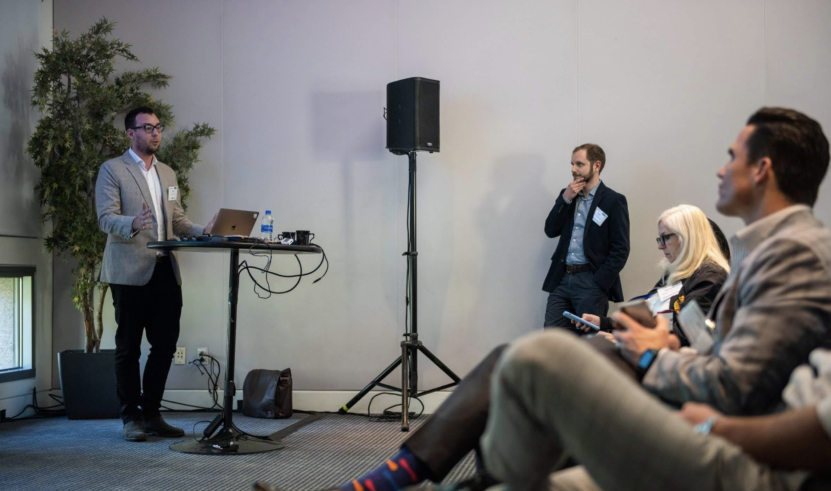HITS

BeBanjo: OTT Services Must Be Nimble, Adapt Quickly to Compete
Story Highlights
As content planning, scheduling, distribution and delivery all become more complex, the need to manage larger quantities of metadata, schedules and rights is crucial to running a successful streaming service today.
This has become more important than ever because the market for video distribution is “going through huge, huge changes [and] the old world of broadcasting and pay TV is collapsing,” Dan Meyer, sales manager at BeBanjo, said March 4 during the Distribution, Platform and People breakout session on “OTT Planning & Scheduling for Seamless International Delivery” at the Smart Content Summit.
As new companies continue to enter the sector, “broadcasters are changing and becoming platform operators, platform operators are changing and becoming broadcasters, and everything is all a bit of a mess,” he said.
Therefore, “now is the key time for both massive threats, but also massive opportunities for your business,” he told attendees. However, to take advantage of those opportunities, organizations need to be “nimble,” “agile” and “be able to experiment” and “be able to adapt to a rapidly changing market.” That means an organization’s operations, including its planning, scheduling and workflows, must be “efficient” to experiment with different business models without adding significant extra costs, he said.
“Lots of people have different definitions” for planning and scheduling, he noted to kick off the session. At BeBanjo, “we look at planning as the first stage – it’s the stage before scheduling,” and it involves the “big picture” and is “more strategic,” Meyer said.
The planning stage is “managed by editorial teams, sales teams, strategy teams and management teams – and these teams plan their content months or even years in advance, and they need a way to plan what content is going on their service in that time frame,” he pointed out. “So, they’re making decisions with their rights, looking at their budgets, using audience research data, they’re sharing drafts and plans, both internally and externally with their partners and affiliates — and really making those big, strategic decisions,” he added.
Organizations are using planning solutions, often very basic, for linear, non-linear and both, “to provide feedback and determine what goes on their service and when,” he told attendees. “The whole idea of it is to bring the most viewers to their service and the most revenue to their service as well,” he said.
Scheduling is done typically in a shorter time frame and is focused on making sure you are distributing your content on the right platform, he noted. Among the most important parts of this stage are “making sure you’re following your rights commitments” and also “making sure you don’t publish on a platform where you don’t have the rights because that can be very costly to you and cause an awful lot of issues,” he noted. Also key: “Making sure you’ve got the right metadata when you publish to your platforms,” he stressed.
Challenges seen over the past 10 years include dated back-end software solutions being used by some organizations that are hard to support, as well as different storage and management solutions being used by organizations in different countries, according to John Mackinnon, North America manager at BeBanjo. The latter makes it hard to cut costs by aggregating content and distributing it once, he told attendees.
There is also a lack of a unified solution across teams, Mackinnon said, noting different teams tend to have different software they have grown used to and like to use.
However, cutting-edge technology solutions like BeBanjo’s have helped some of the world’s largest players unify their VOD operations and also bring together linear planning and scheduling into one unified solution to drive visibility, control and productivity, according to the company.
The Smart Content Summit was sponsored by TapeArk and Seagate, Whip Media Group, EIDR, BeBanjo, Cinelytic, Frame.io, Sohonet, Spherex and Sony, and produced by the Media & Entertainment Services Alliance (MESA) and the Smart Content Council.
Listen to the audio of the presentation here. Access the PDF of the presentation here.









